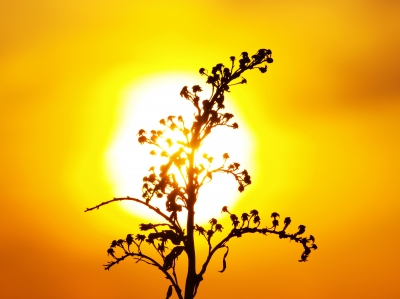- Home
- Science Introduction
- Wg
- Former Initiatives and Working Groups
- The Earth System In a Warmer World
The Earth system in a warmer world
Launch |
|
|
Synthesis |
|
|
|
|
|
2015 |
2016 |
2017 |
2018 |

Image credit: Courtesy of vitasamb2001 at FreeDigitalPhotos.net
PAGES "Warmer Worlds" Integrative Activity was active from 2015 to 2018.
Background
In recent times, the public consciousness has been aware that future warming, triggered by near-term anthropogenic greenhouse gas emissions, will last for many millennia, causing impacts large enough to warrant naming a new geologic epoch, the Anthropocene. It is nearly impossible to understand the scale of these long-term impacts based on the short history of human scientific observations. The only viable way to gain observational insight is to examine responses to long-term warming documented in the geologic record.
The past-climate record provides many examples of climate and environmental conditions for a planet warmer than preindustrial, and the dynamic pathways into and out of these warm planetary states. For example, states of planetary warming similar in scale to what is expected in the course of this century, and the multi-millennial effects of such warming, may be found in the Pleistocene events MIS5.5, MIS11, MIS19, and MIS31. Further back, the Pliocene warm period (3.29-2.97 Myr ago) illustrates a case of long-term warm conditions and their impact on the terrestrial and marine biosphere (possibly including CO2 fertilization and ocean acidification). While some warm intervals in the past appear to be associated with elevated CO2 concentrations, atmospheric CO2 is either not well constrained or likely similar to preindustrial levels for other events. There may be many pathways to the creation of warm global states, and this diversity of geological examples provides useful natural antecedents to better understand future impacts in response to human modifications of the Earth system.
Objectives/Concept
The multitude of climatic and environmental information stored in natural climate archives (such as temperature, precipitation, greenhouse gas and aerosol concentrations, sea level, biome composition, etc), together with climate model results, allow us to draw a comprehensive picture of how climate, the environment, biogeochemical cycles as well as atmospheric and ocean circulation change in warmer worlds. Accordingly, the Integrative Activity "Warmer Worlds" assessed the knowledge on these changes and the existence of planetary boundaries associated with extreme warmth and rapid warming in the past. Moreover, it identified gaps in current research and made suggestions for the future research agenda.
The following cross-cutting questions were addressed (this is not an exhaustive list):
- Climate with its impacts and feedbacks in past warmer interglacials: analogues for a warmer future? Among others, how can long-term changes in the past under different boundary conditions be used to constrain the fast present warming?
- Relationship between climate change and greenhouse gas concentrations (cause, effect, and feedback).
- Dynamics of change associated with warming – are there limits to the speed of warming?
- Were there global environmental "Tipping Points" associated with warming in the past? And how can these past tipping points inform us about possible near-term future tipping points? For example, irreversible loss of polar ice, positive carbon feedbacks etc.
- Variability and Extreme Events associated with warmer worlds.
Approach
An array of PAGES working groups that individually address particular focal points regarding warming and its impacts (for instance QUIGS, PlioVAR, PALSEA, OC3, DICE, Global Paleofire and former Sea Ice and future Holocene working groups) provided comprehensive expertise on the various aspects of climate and environmental changes mentioned above. "Warmer Worlds" tapped this expertise by actively engaging these (and other) PAGES working groups into a coordinated activity in order to draw a comprehensive picture of climate and environmental conditions associated with past global warmth. This comprised the synthesis of observational evidence, model-data comparison, and the analysis of simulated mechanisms and feedbacks to study the applicability of past analogues for future warming.
To accomplish its objectives, "Warmer Worlds" organized a dedicated workshop where members of all PAGES working groups were invited to participate, with the intent of sharing progress and steering the ensemble of groups toward a coordinated assessment outcome. In addition, external expertise from Future Earth and the World Climate Research Programme (WCRP) was invited to complement the PAGES working groups, to insure that the view emerging from study of the geologic past remained focused on issues relevant to Earth and humanity’s future.
Structure and people
"Warmer worlds" was organized by co-chairs, elected by a steering committee, which included at least one member of the leadership of the associated working groups. The co-chairs of the integrative activity were accountable to keep the integrative activity on track. This integrative activity in turn provided impetus to keep the individual working groups moving forward at an appropriate pace.
Contacts
Hubertus Fischer (Universität Bern, Switzerland)
Katrin Meissner (University of New South Wales, Australia)
Alan Mix (Oregon State University, USA)
Meetings
The PAGES-Oeschger Centre for Climate Change Research (OCCR) workshop, titled "Lessons learnt from paleoscience on a possible 1.5-2°C warmer world in the future", was held at the University of Bern, Switzerland, from 5-7 April 2017.
This was the first and only workshop of the Warmer Worlds Integrative Activity. Read more here.
Products
Fischer H, Meissner KJ, Mix AC et. al (2018) Palaeoclimate constraints on the impact of 2 °C anthropogenic warming and beyond. Nature Geoscience 2018, http://pastglobalchanges.org/products/journal-articles/12487-warm-worlds-paper-nat-geosci-18
Watch the Swiss SRF Tageschau news story (in German) from Monday 25 June 2018, with an interview with Hubertus Fischer, here.
Listen to an interview (in French) by Swiss RTS from Wednesday 27 June 2018, with co-author Katrin Meissner and PAGES Executive Director Marie-France Loutre, here.